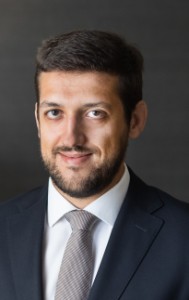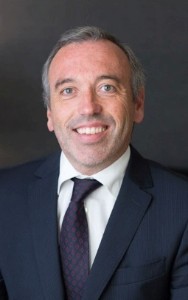Sports Law 2025
Portugal
Trends and Developments
Sports Integrity
The year 2024 began with the publication of Law No 14/2024, of 19 January, which establishes the legal framework for the integrity of sports and the fight against anti-sporting conduct, which has been a growing concern worldwide, especially as the turnover of territorially based and online sports betting grows.
Regarding match-fixing and the manipulation of sports results, Law No 14/2024 establishes that the use of means aimed at artificially altering the results of sports events is a criminal offence punishable by imprisonment for up to eight years.
Match-fixing may also lead to the application of ancillary penalties, such as suspension from sports competitions for up to three years, privation of the right to receive public subventions and a prohibition on performing sporting duties for up to five years.
Mandatory reporting is also imposed whenever sports agents become aware of or suspect anti-sporting conduct contrary to the values of truth, fairness and correctness and likely to fraudulently alter a sports competition or its result. They must immediately report such conduct to the public prosecutor’s office.
Law No 14/2024 also stipulates the creation of a platform to monitor the manipulation of evidence, with experts appointed by the Attorney General’s Office, the judiciary police, the Portuguese Olympic Committee and the Portuguese Football Federation, among others, handing over co-ordination duties to the director of the anti-corruption unit of the judiciary police.
Career Support for Athletes
Given that 2024 was an Olympic year, it was only fitting that it began with the approval of Law No 13/2024, of 19 January, which establishes support measures for Olympic, Paralympic, Deaflympic and high-performance athletes after the end of their careers, such as:
- the creation of a public employment quota system in central, regional and local administration services and bodies;
- the creation of a temporary reintegration grant, to be awarded for a maximum period of 36 months.
- establishment of the equivalence of a definitive employment agreement concluded with a sports athlete who has been part of the high-performance system for at least eight consecutive or interpolated years with an employment agreement concluded with a young person looking for their first job (which has benefits in terms of social security contributions); and
- the creation of a special system of access to higher education for high-performance athletes within three years of the end of their career.
These measures reveal the growing concern of the Portuguese legislator with the management of the end of athletes’ careers.
Women’s Football
In line with its growing prominence, the Portuguese sports federation and Portuguese sports companies have been increasingly investing in women’s football in Portugal.
In June 2024, recognising the physical, psychological and social differences between male and female players, the Portuguese Football Federation internally adopted, with immediate effect, the amendments to the Regulations on the Status and Transfer of Players (RSTP) made by the International Federation of Association Football (Fédération Internationale de Football Association; FIFA) in May 2024, which aim to extend the rights of female players in terms of maternity and well-being.
Among the measures adopted by FIFA and transposed to the Portuguese scenario is the granting of paid leave to adoptive and non-biological mothers. Under this new regulatory framework, players who are non-biological mothers of a child will be able to take eight weeks’ paid leave in the six months following the birth. The length of the leave to be granted to players who adopt a child will vary depending on the age of the child, and may be eight, four or two weeks.
In addition, the rights relating to contractual stability and registration periods in the event of maternity have been amended to cover not only biological mothers, but also adoptive and non-biological mothers.
The rights of players in the event of maternity have also been clarified, reiterating that players who become pregnant during the term of their employment contract have the right to:
- continue to engage in professional activity and receive full remuneration;
- request the provision of alternative services to sporting activity; and
- take paid sick leave in the event of medical complications associated with pregnancy (including early termination of pregnancy).
At the end of maternity leave, the employing club is not only obliged to reintegrate the player into sporting activity but is also now obliged to agree a postpartum plan with the player and provide her with adequate and continuous medical support.
Regarding breastfeeding, it has been clarified that reducing a player’s working hours for this purpose does not imply any reduction in salary, and that the facilities provided by clubs for breastfeeding/breastfeeding must be private and secure.
Another important development ushered in by FIFA and adopted by the Portuguese Football Federation concerns the menstrual health of female players. Around 93% of female players experience symptoms during their menstrual cycle that can affect their performance, recovery and quality of life; therefore, on presentation of a medical certificate, players are now allowed to be absent from training or matches whenever their menstrual health requires it, without their pay being affected.
Most of the special measures applicable to female players will also apply to female coaches, except for the right to request alternative services to sporting activity in the event of pregnancy, which is justified given the different nature of the services provided by coaches.
The developments in women’s football will certainly not stop here, as the possibility of introducing a training compensation mechanism for female players is currently being discussed.
eSports
eSports were a trending topic in Portugal during 2024, with several political parties discussing the need to regulate eSports and to recognise it as a sport.
eSports in Portugal have undergone an exponential evolution in the last few years, with the emergence of numerous athletes, clubs, coaches, event organisers, specialised media, enthusiast communities and national and international competitions and events. In fact, Portuguese players are in 22nd place in the earnings table.
Portugal was one of the first countries with a football federation that embraced eSports, adding a section therefor in 2017. The eSports section of the Portuguese Football Federation includes football teams licensed for online competitions but also clubs specifically created for online competitions.
In 2018, one of the first eSports Associations was created in Portugal: the Portuguese Federation of Electronic Sports.
Despite the exponential development of the economy of eSports in Portugal, it is still a severely under-regulated sector of the sports industry.
Commercialisation of Sports Events
As for other members of the EU and the World Trade Organization, Portuguese jurisdiction allows for the exploitation of patents, trade marks, merchandising, copyrights, broadcasting rights, sponsorship and image rights.
The owner of the above-mentioned rights varies depending on the sport in question. For example, in futsal and hockey, the respective sports federations are the exclusive owners of the merchandising, broadcasting, sponsorship and image rights – and the copyrights – of all matches played in the various competitions. Therefore, the commercialisation of these rights is undertaken by the sports federations, which can transfer or license the rights through written agreements.
Conversely, in football, the television and multimedia broadcasting rights for matches in the first and second national men’s football leagues are owned by the sports clubs or sports companies that participate in these competitions. Although professional Portuguese sports clubs currently sell these rights individually, as of the 2028–29 sports season, such rights will have to be jointly sold in terms to be defined by the Portuguese Football Federation by the end of the 2025–26 sports season, subject to approval by the Portuguese Competition Authority, as set out in Decree-Law No 22-B/2021 of 22 March.
Following the entry into force of Decree-Law No 22-B/2021, the Portuguese League created Liga Centralização, an entity dedicated to studying, defining, proposing and supporting – before any public or private entity – a model for the centralised marketing of rights.
A centralised marketing model for television and multimedia rights is justified by the fact that the individualised marketing model currently adopted in Portugal allegedly promotes greater discrepancies between the various clubs in the league, insofar as it channels the majority of the revenues to larger clubs, which – due to their larger fan bases – receive larger bids for the marketing of their rights, to the disadvantage of smaller clubs.
Although it may be claimed that this model is less attractive to larger clubs, based on the example of the main European leagues, the expectation is that it will tend to generate economic advantages for all clubs in the first and second national leagues, regardless of their size. With a better and more equitable distribution of the total value of television revenues, smaller clubs will have more capacity to invest in strengthening their teams, generating greater internal competitiveness that is expected to make the competition more attractive and lead to an increase in other sources of revenue.
The comparative experience of other countries also allows us to anticipate that the transition to a centralised marketing model will generate advantages for sports channels and fans, insofar as it will make it possible to ensure that a wider range of sports content is available more regularly, in line with consumer preferences.
The Diarra Case
It would be impossible to discuss the sports developments in 2024 without referencing the Diarra case, in which the ECJ ruled that some of FIFA’s players’ transfer rules are incompatible with EU law. The decision was published on 4 October 2024 and has been referred to by the sports industry as the most revolutionary case since the Bosman case.
The background of the case is as follows.
- Lassana Diarra, a French football player, entered a sports employment agreement with the club FC Lokomotiv Moscow.
- After one year, the club terminated his contract due to alleged contractual breaches and filed a claim for compensation before FIFA’s Dispute Resolution Chamber, claiming breach of the contract and termination without cause, as stated in Article 17 of FIFA’s RSTP. The claim was upheld.
- Following the termination, the player received an offer by club Royal Charleroi, under the conditions that (i) Diarra could be registered and play in the club’s first team in all FIFA-, Union of European Football Associations (UEFA)- and Belgian Football Association-organised competitions, and (ii) no compensation was due by Royal Charleroi to Lokomotiv Moscow.
- Given that the player could not assure those conditions, he missed this opportunity.
- Consequently, the player brought the matter before the Belgian courts in 2015 and argued that Article 17 of the RSTP did not comply with EU law, specifically with the principle of free movement of workers.
- The Belgian courts upheld the claim, and FIFA appealed that decision to the ECJ.
In October 2024, the ECJ deemed that Article 17(1) of the RSTP did not comply with the European principle of free movement of workers, as enshrined in Article 45 of the Treaty on the Functioning of the European Union (TFUE), foreseeing that, in case of joint and several liability of the new club for the payment of compensation for breach of contract owed by a professional player to his former club in the event of early termination of the contract without just cause, such provision is likely to discourage or dissuade clubs from signing such player for fear of exposure to a financial risk.
The ECJ also concluded that this rule unjustifiably restricted the free competition imposed by EU law (Article 101 of the TFUE), as it restricts the employment of players in this situation and puts them in an unfavourable position vis-à-vis other players.
Following the ECJ decision, FIFA opened a global dialogue on Article 17 of the RSTP and suspended all disciplinary proceedings related to the application of that provision.
In December 2024, FIFA adapted its transfer regulations on an interim basis, with immediate effect (ie, in time for the January transfer window). The key temporary changes are as follows:
- compensation payable by a player to their former club in the event of termination without just cause is to be calculated taking into account the damage suffered, having regard for the individual circumstances of each case and with due consideration of the law of the country concerned (under the previous rule, compensation was to be calculated with due consideration of the law of the country concerned, the specificity of sport and any other objective criteria);
- in the event of termination without just cause, the new club of the player will only assume such liability if it is proven that it induced the unlawful termination (the original rule provided that the new club was automatically liable);
- the application of sporting sanctions to the new club depends on the former club proving that the new club induced the breach of contract (previously, the new club was presumed to have induced the breach of contract); and
- the former club’s national association cannot reject the issuance of the International Transfer Certificate (ITC) – the original rule provided that the national association of the former club was able to withhold the ITC if there was a dispute over the termination of the playing contract.
Considering the interim measures adopted by FIFA, it is clear that the Diarra case will lead to a major overhaul of the transfer system.
The Seraing Case
In the first few days of 2025, another relevant development in the sports market involved the ECJ: the Advocate General offered the ECJ her opinion on the Seraing case, which may revolutionise sports arbitration.
The Seraing case originates in a contract entered into by a Belgian football club, Royal Football Club Seraing, with Doyen Sports for the transfer of the economic rights of several football players. FIFA’s disciplinary committee found that this arrangement breached FIFA’s rules on third-party ownership (TPO) prohibition and imposed certain disciplinary measures on the club, as confirmed by the Court of Arbitration for Sport (CAS) and the Swiss Federal Supreme Court.
Following CAS’s decision, Doyen Sports filed a complaint presented before the Belgian courts claiming that FIFA’s TPO prohibition, as implemented by UEFA and the Royal Belgian Football Association (La Union Royale Belge des Sociétés de Football Association), was not valid.
The Belgian courts declined jurisdiction on the basis that Belgian law attributes the force of res judicata to certain types of commercial arbitration awards, including CAS awards.
The claimant appealed the decision to the Belgium Court of Cassation, which referred the matter for a preliminary ruling of the ECJ on whether EU law precludes the application of such national provisions to an arbitral award that has been reviewed solely by a court of a state that is not a member state of the EU (ie, Switzerland).
The Advocate General considered that direct access to a full judicial review by a national court against any and all rules of EU law must be available to EU sport actors that are subject to FIFA’s system of dispute settlement, and therefore concluded that a final CAS award issued by a state that is not a member state shall be subject to review by a court of a member state in compliance with EU law.
The conclusions reached by the Advocate General are sustained on two grounds: (i) FIFA’s sports arbitration clauses are mandatory, which means the parties did not freely agree to be subject to an arbitral award that cannot be reviewed; and (ii) unlike in civil and commercial arbitration, FIFA can enforce the arbitral award on its own – ie, without recourse to an enforcement proceeding, which means that it is highly unlikely that the compliance of the decision with EU law would ever be analysed by a judicial court.
For now, these are merely the conclusions of the Advocate General, which are not binding to the Court of Justice. However, if the ECJ follows these conclusions, the decision will certainly be a landmark in the sports arbitration system and will revolutionise sport’s international dispute system.
Sérvulo & Associados
Rua Garrett, 64
1200–204 Lisbon
Portugal
+351 210 933 000
geral@servulo.com www.servulo.com



